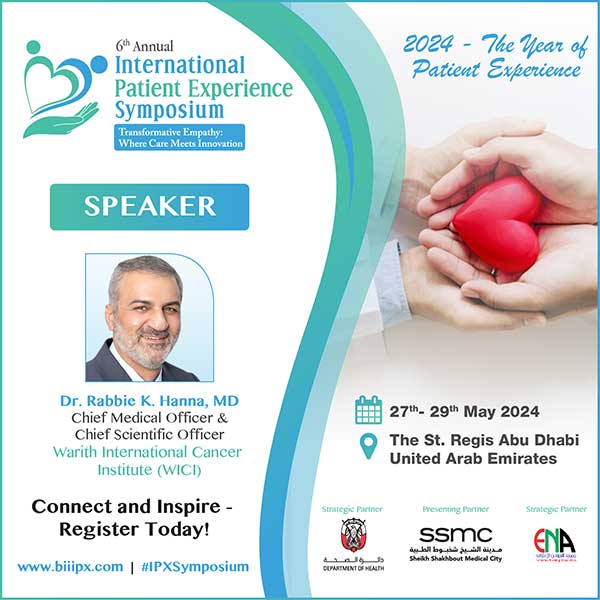1. How do you perceive the significance of 2024 as “The Year of Patient Experience,” and what key developments do you foresee in the realm of patient-centered care?
The current times are paramount in understanding how to engage the patients and medical teams (including staff) together in enhancing the relationship, and the developments in this realm will have an immense effect when studied and applied appropriately.
2. As we delve into the theme “Transformative Empathy: Where Care Meets Innovation,” how do you envision empathy driving innovation in healthcare practices to enhance the patient experience?
Empathy drives the desire of healthcare professional to minimize the side effects of various treatments from a physical standpoint in addition to enhancing the processes that would lead to a shorter TAT leading to less psychological stress. Hence, speaking with my surgical hat on, and despite the challenges we face, we are striving to maximize the therapeutic effects of medical management and at the same time enhancing the recovering process such as introducing robotic surgery in the surgical fields.
3. Could you share insights into how bridging health and social aspects contributes to achieving better patient outcomes, aligning with the symposium’s theme?
“They never car how much you know, they know how much you care”. Hence, with integrating the social information of the patient into our doctor-patient relationship, the patient becomes a part of the family during the treatment process and afterwards enhancing their adherence to care, improved outcomes and retention.
4. What specific challenges do healthcare providers face in integrating transformative empathy into their practices, and what strategies do you recommend to overcome these obstacles?
- Lack of soft skills as such were not taught in medical school or during training
- Scarcity of personal knowledge about the lack of such skills
- Limited time to learn
- Challenged critical thinking aspects that are within the fabric of the society
5. In your opinion, how can interdisciplinary collaboration among healthcare professionals, technologists, and patient advocates foster a culture of empathy-driven innovation, ultimately shaping the future of patient care?
Such collaboration will enhance the relationship between the patient and the healthcare team which in turn will only have a positive effect.
6. How do you think participants will benefit by attending 6th Annual International Patient Experience Symposium?
Through sharing different experience and shedding the light on the soft skills needed to enhance the patient experience and encourage participation in workshops.


